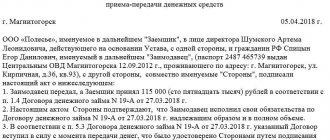Prices for lawyer services in inheritance disputes
The act of accepting the transfer of an apartment under a gift agreement is an indispensable part of this type of transaction. The procedure for transferring real estate free of charge is a fairly common form of alienation of valuable property. The procedure for donating real estate is regulated by the provisions of Chapter 32 of the Civil Code of the Russian Federation (the rules for concluding and terminating transactions are disclosed in Chapter 9).
One of the stages of re-registration of a real estate property is the signing of an act of acceptance and transfer of property on the basis of a gift agreement.
3 ways to get a free consultation with a lawyer 01
-consultant in the online chat bottom right
02
Free call 8 (free consultation in Russia)
03
Request a call back (bottom left button), a lawyer will call you back in 10 minutes
Free consultation with a lawyer on inheritance disputes Prices for lawyer services on inheritance disputes
Characteristics of the deed of gift
The deed of gift can be characterized by the following aspects:
- The procedure for alienation of real estate occurs free of charge. The donor does not have the right to demand any services from the recipient or include various conditions in the contract.
- If the deed of gift is concluded with a close relative, the mechanism of alienation of property is not subject to tax.
- The Agreement cannot be terminated, annulled or revoked unilaterally. Termination of the transaction occurs solely by the voluntary consent of both parties or in court.
- The deed of gift for an apartment is drawn up in writing and is subject to state registration.
- The property becomes the property of the donee immediately after signing the contract. To certify the fact of transfer of ownership, an act of acceptance and transfer of the apartment is drawn up.
How to transfer an apartment under a gift agreement
The very fact of signing the agreement and even registering it with the Rosreestr branch does not mean that the transaction has taken place. Formally, ownership comes after the documents are re-registered. However, in reality, the obligations under the contract will be fulfilled only after the deed is signed - just as the buyer becomes the actual owner of an item only after its physical delivery to the home.
Therefore, all key stages of the transaction should be spelled out in detail in the text of the main agreement:
- Within what time must the parties register an already signed gift deed?
- Within what time must the donor (former owner) vacate the premises, taking all his belongings?
- What specific period (cut-off date) should the actual transfer of the premises (keys) and property in it take place?
The sequence of actions usually looks like this:
- The parties discuss all the important details, draw up a gift agreement, and carefully study it.
- They finalize the text and, in case of full agreement, sign the agreement (in 3 identical copies).
- With a full set of documents, they are sent to Rosreestr or MFC to carry out state registration of the transaction.
- After 5-10 working days, new documents are collected from Rosreestr.
- Then, within a certain period of time (usually 10-15 days), the previous owner must move to another address and vacate the premises.
- On the appointed day (within the established period), the donor and donee sign the acceptance certificate of the apartment, the new owner receives the keys to the old one. The contract was fulfilled, the new owner assumed his rights and actually received his “thing”.
Thus, in order to avoid possible unpleasant consequences, it is necessary to carefully draw up both of these documents. If necessary, it is preferable to seek the help of professional lawyers.
Act of acceptance and transfer of real estate
In accordance with the legislative norms prescribed in Chapter 32 of the Civil Code of the Russian Federation, registration of the transfer deed is not a mandatory procedure.
The act of acceptance and transfer of a real estate object is a confirmation of the fact that the donation took place and the real estate became the property of the donee. Based on this document, the transaction can be considered valid and legal (the document is drawn up in two copies).
The transfer deed additionally serves as confirmation of the fact that both parties are fully familiar with the terms of the transaction (for example, the donee knows about the condition of the transferred property). Accordingly, if there is a transfer deed, it is almost impossible to challenge the donation procedure.
Transfer of a gift by delivery
One of the most common methods of transferring a property benefit to a donee under a gift transaction is its delivery (paragraph 2, paragraph 1, article 574 of the Civil Code). According to paragraph 1 of Art. 224 of the Civil Code of the Russian Federation, the delivery of a gift will be considered completed from the moment the recipient begins to own this gift. Except for cases requiring state registration of rights to a gift (Article 131 of the Civil Code), the delivery of a gift is accompanied by the transfer of ownership rights to it (clause 1 of Article 223 of the Civil Code).
Important
In general cases, the process of making a gift, regulated by Chapter 32 of the Civil Code, does not require any documentation. However, at the request of the parties, it can be recorded in an act of acceptance and transfer of the gift, drawn up in writing.
This act records the transfer process, the condition of the transferred property, its configuration, features and disadvantages. Its execution makes it possible to exclude any disputes between the parties regarding the fact of transfer and the information specified in the act.
In the case of concluding a real gift agreement, the procedure for formalizing the transaction is always accompanied by the transfer of the gift. Upon delivery, in order to comply with the legality of the agreement, the parties must verify the availability and authenticity of the following documents :
- identification documents of the parties;
- documents confirming ownership of the donated item;
- extracts from the state real estate cadastre, certificate from the BTI, etc. (upon transfer of real estate);
- the gift agreement itself (delivery of the gift, in the case of a written donation, is possible only after signing the agreement);
- act of acceptance and transfer of property (optional, but desirable);
- notarized consent of the co-owners of the property for its transfer;
- power of attorney (in case of participation as a representative party).
Depending on the characteristics of the object of the donation, the nature of the transaction and other nuances, when presenting a gift, it may be necessary to have other documents .
Features of the transfer deed
A transfer deed can be drawn up both for the alienation of real estate and for the transfer of movable property. The main aspect, regardless of the type of property being transferred, is the absence of unilateral and mutual claims between the parties.
The act of acceptance and transfer of real estate is not a mandatory document and serves solely as insurance in the event of various kinds of disputes and claims regarding the donated property.
A deed of transfer is not required when signing a gift agreement and is not registered with government agencies (Rosreestr).
The deed of acceptance and transfer must necessarily contain a link to the deed of gift (the document specifies the details of the donation agreement). The transfer deed will constitute indisputable confirmation of the fact that the transaction has taken place.
If there are several persons on the part of the donee, the transfer and acceptance act must contain information about each of them. The document necessarily reflects the fact of acceptance of the gift by each interested party and the absence of claims against the donor on the part of the recipient. The document must contain the signatures of all parties to the transaction.
Additional contents of the act
As already mentioned, mandatory content is provided for by civil law and business customs. However, the parties have the right to decide for themselves what other information to include in the document, in addition to the mandatory data.
Real estate experts recommend that you include the following information:
- information about the property transferred along with the object (keys, furniture, etc.);
- the fact of transfer of documents confirming payment of all debts of the apartment for utility bills;
- the fact of transfer of an object for maintenance under a contract by third parties (cable TV, Internet, telephone, etc.);
- the presence of witnesses during the compilation, preferably from among the residents of the same apartment building where the apartment is located or the owners of neighboring plots, if the object is land;
- the fact of transfer of title documents to the object.
In the case of a sale and purchase, the deed indicates the fact of transfer of funds, method of payment, and so on. However, the deed of gift is a gratuitous transaction, so in this case such information is not indicated.
Thus, the act is an optional additional document to the main transaction. However, the practice has developed that the registry authorities refuse to register rights due to the lack of such a document. In addition, its practical significance increases many times over when disputes arise over donations.
Contents of the real estate transfer and acceptance certificate
The current legislation does not regulate the content of the document. The act can be drawn up in free form. However, the document must necessarily reflect the following information:
- Document's name.
- Information about the parties to the transaction (passport details of the donor and recipient, place of registration and residence of the parties are indicated).
- The document reflects a complete technical description of the object being donated (for example, address, location of the property, technical data, floor, etc.).
- If we are talking about part of the property, the agreement must contain information about the size of the alienated share.
- Depending on the type of real estate, the act indicates the fact of transfer of related documentation, keys to the apartment, and so on.
The transfer deed must be signed by both parties. The signatures of the parties indicate that they are aware of the terms of the alienation of real estate, that the transaction was completed on the day the document was signed and the parties are fully satisfied with the process.
Notarization makes the deed a fully legal document.
If the contract is concluded through a representative, such person is required to provide a power of attorney (the details of the power of attorney are additionally indicated in the deed of transfer).
We draw up an act of acceptance and transfer of property under a gift agreement
The blank form of the act can be filled out by hand or on the computer. The main thing is that the signatures on it are “live”.
In the upper right corner it is required to indicate that the deed is an annex to the gift agreement. In addition, you need to enter the date of signing and the contract number (if it is numbered).
Next, write the name of the document - the act of acceptance and transfer of property into ownership for the gift agreement, indicate its number (if numbering is performed) and the date of signing.
After this, they begin to compose the main part. Here you need to provide information about the parties. These are the names of organizations, full names and positions of their representatives (for legal entities), full name of the participant in the transaction (for individuals), number and date of drawing up the gift agreement.
Then indicate the essence of the act:
- The Donor transferred and the donee accepted the Gift (property).
- The donor handed over the documents for the property, and the donee accepted them. This could be a technical passport or cadastral passport of an apartment or other real estate, a cadastral passport for land, a land plot plan, a PTS, a car registration certificate, etc.
- All hidden defects of the property were agreed upon by the parties.
- The parties have no claims against each other.
- The obligations of the parties have been fulfilled.
- Number of copies of the act.
At the end of the document, the donor and the donee put their signatures with a transcript. When an organization uses a seal, it is also affixed.
Gift Restriction
Current legislation provides for a circle of persons who do not have the right to act as donees. It is prohibited to accept property as a gift and to draw up an acceptance certificate:
- Employees of the institutions in which the donor is detained (for example, staff of a nursing home or medical facility). It is also impossible to carry out the donation procedure with relatives of this personnel.
- Employees of government agencies and organizations, representatives of guardianship and trusteeship authorities.
- Minor citizens without an official representative (parents of a minor or employees of guardianship authorities can act as a representative).
The following persons do not have the right to act as a donor:
- People suffering from mental illness.
- Persons under the influence of alcohol or drugs.
- Citizens limited in their legal capacity by a court decision.
Author of the article: Petr Romanovsky, lawyer Work experience 15 years, specialization - housing disputes, family, inheritance, land, criminal cases.
Useful information on inheritance disputes
- Gift deed or will - which is better?
- Deed of gift with the right of lifelong residence
- Cancellation of deed of gift
- Challenging the deed of gift
- Gift agreement between close relatives
- Cost of deed of gift
- Documents for deed of gift
- Registration of a gift agreement
- Deed of gift with deferred rights of entry into property
- Registration of a gift agreement
- The difference between a will and a deed of gift
- Agreement for the determination and donation of shares
- Gift tax
- Invalidity of the gift agreement
- Donation of funds between individuals
- Is it possible to issue a deed of gift for a minor child?
- Agreement of gift or sale
- Share gift agreement between individuals
- Gift deed for an apartment
- Certification of the gift agreement by a notary
- Gift deed after the death of the donor
- Gift deed for garage
- Gift between spouses
- House donation agreement
- Deed of gift for a plot of land between close relatives
- Registration of real estate donation agreement
- How to draw up a deed of gift for a share in an apartment
- Transfer deed to the apartment donation agreement
- Gift agreement: pros and cons
- Gift deed for a relative's car
- Husband's consent to donate an apartment
- Is it possible to terminate a gift agreement?




